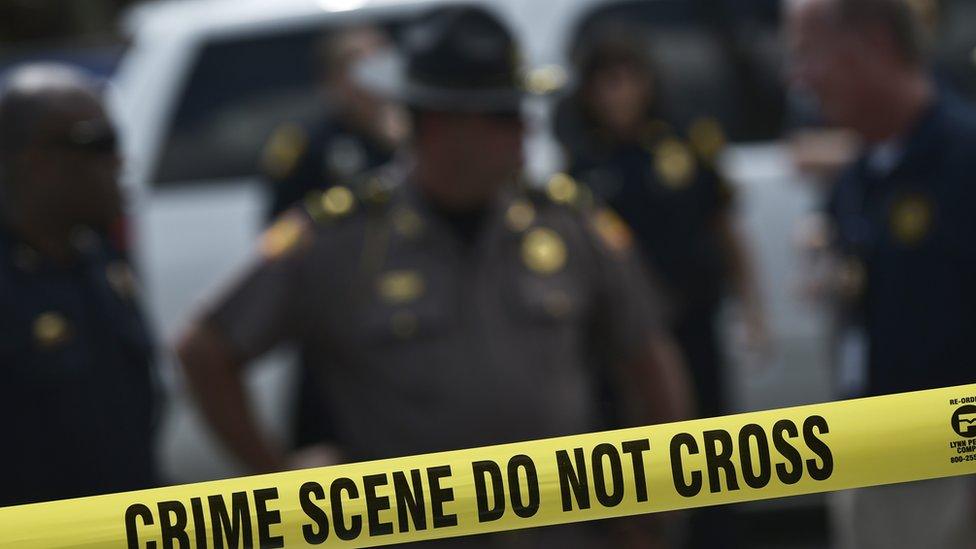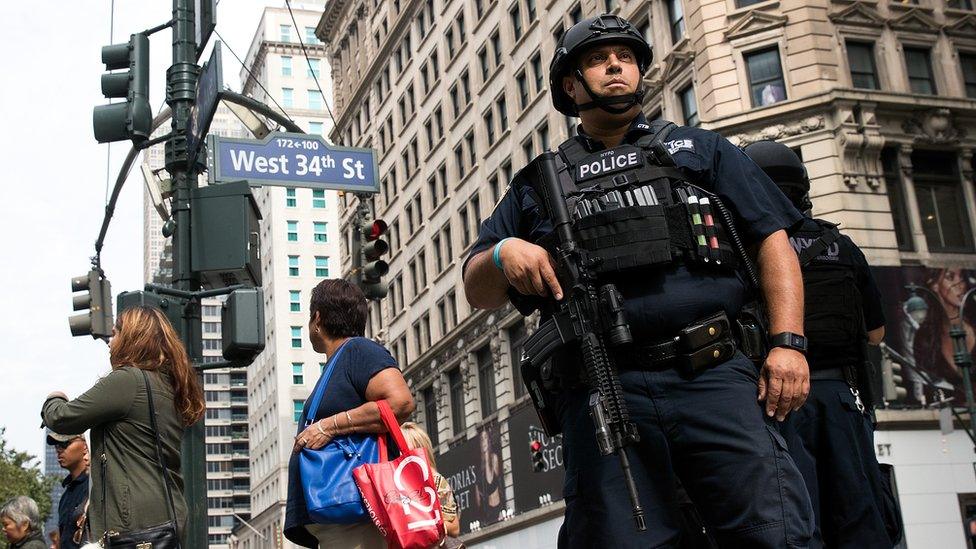Murders, rapes and assaults rise in US, says FBI report
- Published

Violent crime in the US increased last year, according to the FBI, with murders, rapes and assaults all edging up after falling for decades.
There were 1,197,704 violent crimes in 2015, an increase of 3.9% compared to the previous year, said the US law enforcement agency's annual report.
The 2015 violent crime rate was 372.6 incidents per 100,000 people, compared with 361.6 the year before.
But crime levels are still far below their peak during the 1990s.
In 2015, there were an estimated 15,696 murders in the US, compared with 14,164 the year before.

A policeman on patrol in New York City this month
Murder and non-negligent manslaughter had increased 10.8%, according to the report, with guns used in two-thirds of those cases.
The increase in crime was most pronounced in the segregated and impoverished neighbourhoods of big cities, the FBI report found.
Crime was highest in the southern US, the report found.
The murder and manslaughter rate in the region - at 45.9 per 100,000 people - was more than twice as high as in the West, Midwest and Northeast, said the FBI.
Rates of rape, assault and property crime were significantly higher as well.
The FBI data, external emerged on the day of the first presidential debate between Donald Trump and Hillary Clinton.
The report could play into Mr Trump's pitch as the law-and-order candidate.
The Republican last week praised police "stop-and-frisk" tactics, which critics argue unfairly target minorities.
Mrs Clinton has called for stricter gun control to help tackle violence, as well as national guidelines on the use of force by police officers.
FBI Director James Comey warned last year that murder rates were on the rise because police were holding back from aggressive tactics.
He said a "chill wind" had made officers fearful of being taped on mobile phones and accused of brutality.
However, US Attorney General Loretta Lynch subsequently said there was no data to support the so-called Ferguson effect.